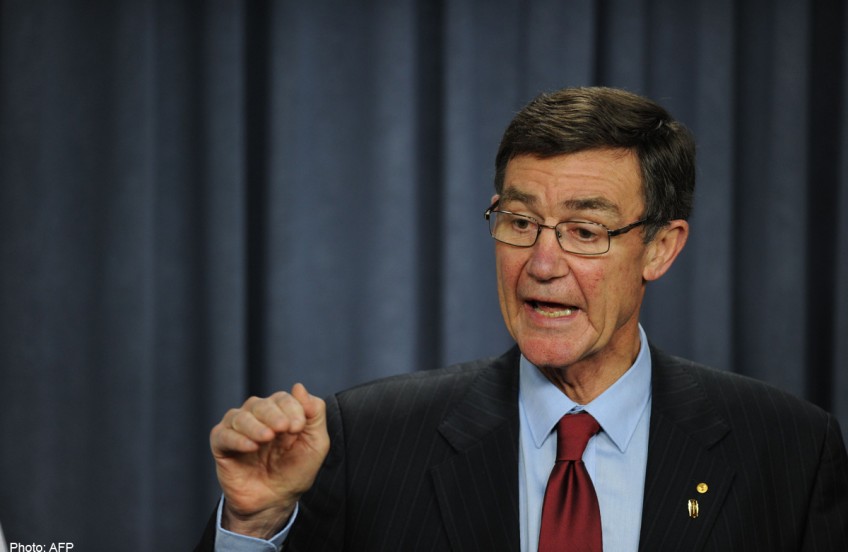Ex-defence chief fronting MH370 search known for his honesty

Shortly after finishing high school in Scotland, Mr Angus Houston, the son of a British fighter pilot, applied to join the British air force but was rejected because he was too tall.
Devastated, he travelled to Australia in 1968 and worked on an outback farm before attempting two years later to fulfil his lifelong ambition to become a pilot.
He applied to the Australian air force and this time was accepted.
Few would now disagree that it was Britain's loss and Australia's gain. After joining the service, his rise through the ranks was swift and he was eventually promoted to head the Australian air force before being made Chief of the Defence Force in 2005.
Now, three years after retiring from the military, Air Chief Marshal (Retired) Houston, 66, has become the face of the international search for the missing Malaysia Airlines plane.
As the head of the Joint Agency Coordination Centre, Mr Houston's task has been to ensure close cooperation between nations such as China, the United States, Australia, South Korea and Japan, some of which do not always see eye-to-eye on military matters. He must ensure military planes and naval vessels are covering the search area as safely, efficiently and quickly as possible.
He must also stand before the world's media and provide updates on a search that has proven tantalisingly difficult and so far failed to find any confirmed trace of the missing plane.
It became clear from his first appearance that he would not mince words, as he gave his initial sober assessment: "It is a very inexact science at the moment This will take time."
In contrast with the regular Malaysian updates, which can sometimes appear shambolic, Mr Houston's calm demeanour at these briefings has been striking. The 1.96m tall former rescue pilot has not appeared ruffled or defensive.
But this forthright manner would be no surprise to many in Australia. Indeed, it was a remarkable display of candour by the then head of the air force that thrust him into the national spotlight.
Twelve years ago, Mr Houston appeared at a Senate inquiry to give evidence on a controversial affair surrounding the John Howard government's claims shortly before the 2001 election that boat people had thrown their children overboard while fleeing to Australia. It was Mr Houston who admitted publicly that he had advised former defence minister Peter Reith that the claim was wrong and that no children had been thrown overboard - an error the minister did not fix.
The revelation was extremely damaging for the government and stunned observers, who believed Mr Houston's honesty would end his career. Instead, Mr Howard, apparently acknowledging the candour and aware of his merits, appointed him to be head of the military three years later.
As Australian journalist Mark Dapin put it, Mr Houston came across as "a figure from another time, when decency was a virtue to be striven for rather than counterfeited".
As military chief, he attempted to champion the cause of women in the military and boosted services for wounded veterans. Despite his decades of experience, however, he has admitted that the current search operation is the "most challenging" he has ever seen.
jonathanmpearlman@gmail.com
This article was published on April 7 in The Straits Times.
Get a copy of The Straits Times or go to straitstimes.com for more stories.